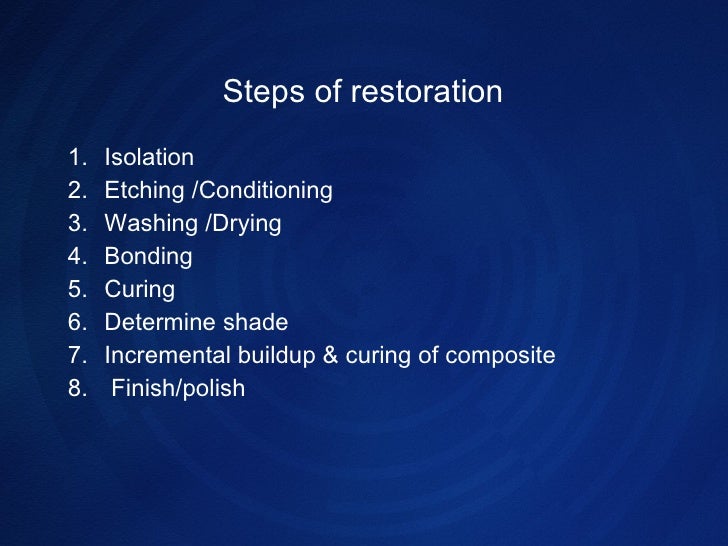Good evening all, today we just brushup the things related to amalgam and its hazards.
Dental amalgam is a common material used to fill cavities. Fillings made with amalgam also are known as silver fillings. Over the years, concerns have been raised about the use of amalgam because it contains mercury. Here we are providing the answers to some common questions about dental amalgam.
Amalgam is a combination of metals that has been the most popular and effective filling material used in dentistry for the last 150 years. Although it sometimes is called "silver amalgam," amalgam actually consists of a combination of metals. These include silver, mercury, tin and copper. Small amounts of zinc, indium or palladium also may be used.
Why is mercury used in amalgam?
Mercury is used in amalgam because it helps make the filling material pliable. When it is mixed with an alloy powder, it creates a compound that is soft enough to mix and press into the tooth. But it also hardens quickly and can withstand the forces of biting and chewing.
Why the concern about mercury in amalgam?
Mercury is a metal that occurs naturally in the environment. Mercury can exist as a liquid, as in many thermometers. When heated, it becomes a gas. It also can be combined with many other materials.
Everyone is exposed to mercury through air, drinking water, soil and food. Concerns have been raised, for instance, about the amount of mercury building up in fish as a result of pollution. Mercury enters the air from industries that burn mercury-containing fuels. Mercury from all sources can build up in body organs.
As with most substances, the degree of harm caused by mercury in the body is related to the amount. Very low levels don't cause any ill effects. At higher levels — for instance, when workers are exposed to mercury through their jobs — mercury can cause several symptoms. These include anxiety, irritability, memory loss, headaches and fatigue.
The controversy over amalgam centers on how much mercury fillings released and how much the body absorbs. In the past, amalgam fillings were thought to be inert. This would mean that no mercury was released once the filling was placed in the tooth. In recent years, sophisticated tests have changed this view. Varying levels of mercury in the form of vapor can be released as the amalgam filling wears. Research on this issue is complex and has arrived at various estimates of the actual amount of mercury released.
Do some people have reactions to amalgam?
Should pregnant women be concerned about amalgam fillings?
Research has not shown any health effects from amalgam fillings in pregnant women. However, mercury can cross the placenta. In general, dentists advise pregnant women to avoid unnecessary dental care. Women should not get amalgam fillings during pregnancy. Dentists can suggest other materials for any pregnant woman who needs a cavity filled.
Should anyone else consider alternatives to amalgam fillings?
Are there alternatives to amalgam?
Dentists use other materials to restore teeth. These include composite resin, porcelain and glass ionomer cements. These are tooth coloured materials with high strengh values.
Should I have my previous amalgam fillings removedif they worn, broken?
Yes, offcourse...... replace amalgam fillings when they are worn, broken or when there is decay beneath the filling.
Should I visit an amalgam-free practice?
If you have a mercury allergy or amalgam tatoo formation and you need to consider it. If you have any concerns about your previous amalgam fillings, talk to us about them. We will provide the following necessary information regarding alternatives to amalgam fiiings namely composites, glass inomer cements.
AMALGAM ALTERNATIVES.......
1. Composites:
Resin composite restorations are not only more aesthetically pleasing but may also offer clinical
advantages over amalgam. While dental amalgam has been used for Class I and Class II restorations
successfully for over one and a half centuries, it has been shown that there are shortcomings which can
be overcome with resin composite. One of the major advantages of using resin composite as a
restorative material is the ability of resin composite to bond with enamel, unlike amalgam. This
micromechanical retention is shown to be simple to develop, and is the strongest adhesion in the oral
cavity currently available . As a result, there is less tooth structure loss in the cavity preparation
when compared to the placement of a similar amalgam restoration.



2. Glass ionomer cement (GIC)
Glass-ionomer cements belong to the class of materials known as acid-base cements. Glass-ionomers set within 2–3 min from mixing by an acid-base reaction. The first step is a reaction with hydrated protons from the polyacid at basic sites on the surface of the glass particles. This results in the movement of ions such as Na+ and Ca2+ (or Sr2+) from the glass into the polyacid solution, followed quickly by Al3+ ions. These ions then interact with the polyacid molecules to form ionic crosslinks, and the insolubilised polysalt that forms becomes the rigid framework for the set cement. When this setting reaction occurs, all of the water becomes incorporated into the cement, and no phase separation occurs.
ADVANTAGES OF GLASS IONOMER CEMENT
- Closely matches the colour of your teeth.
- Often no preparation is needed before you are fitted with a glass ionomer filling. This means that it is a popular choice for use when children have cavities that need filling.
- They release fluoride over time, thus strengthening your tooth and maintaining good dental health.
- They bond exceptionally well to the tooth, so preventing any further decay or leaking.
So, please if have any previous amalgam fillings or cavities..... just visit us at Hyderabad Smiles Dental Hospitals, we have various treatment options for you alll friends......
- For any other queries, please contact
Dr.Dilip Kumar BDS, MDS (Oral and Maxillofacial Surgeon)
Certified Implantologist (Noble Bio-care Germany)
Certified Smile Care Dentist (New York University)
Phone Number: 9247864642, 8801627272.
No comments:
Post a Comment